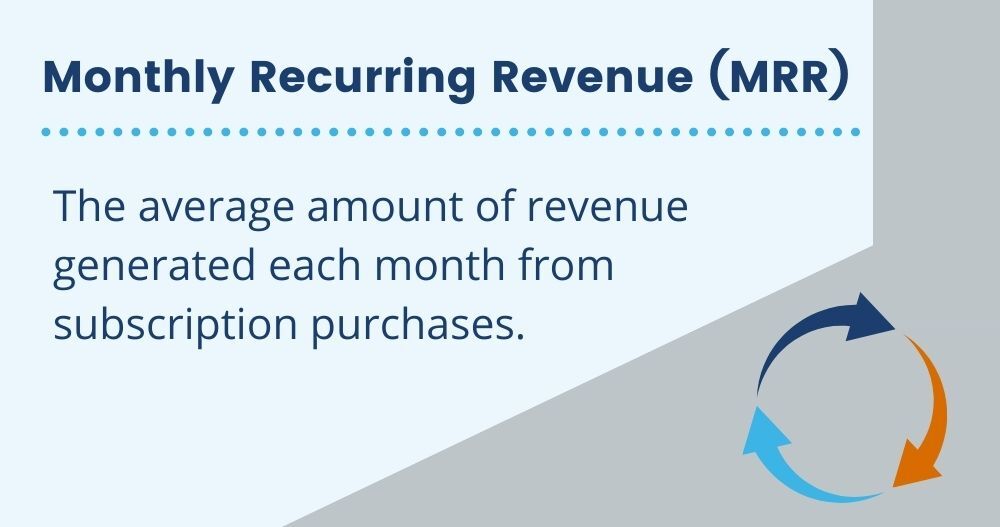Give customers exactly what they crave by selling subscriptions. And now it’s easier than ever to sell subscriptions through the BigCommerce platform.
Mail-order subscriptions aren’t a new concept — consumers have been receiving magazines and newspapers for years. But there’s no doubt monthly subscription boxes are a fresh take on an old idea. Subscription commerce is now an industry of its own, and traditional merchants are launching new subscription offerings as well.
Many sellers will claim they’re offering subscriptions because it’s what their customers want. In truth, the subscription model is appealing to both consumers and merchants — and it makes sense. Recurring revenue is important to a company’s growth and diversification prospects.
Merchants that sell consumable products agree that launching a subscription offering is worth it. A well-executed subscription will stabilize your budget, increase customer lifetime value (CLTV) and decrease marketing and acquisition costs. Don’t just take it from us, though — we reached out to successful ecommerce companies to learn how subscriptions and recurring revenue have helped them thrive.
1. it gives you a predictable income

It may sound basic, but monthly recurring revenue (also called MRR) helps businesses balance their books by making month-to-month income easy to estimate. Financial forecasts are much easier when you can start by plugging in the number of subscribers you have and the exact amount of profit you’ll make from each box you ship. You’ll still have to think about factors like customer acquisition and churn rates, but on the whole, you’ll have a good idea of upcoming cash flow.
Companies with low margins or cash runways benefit from a clear picture of month-to-month revenue. Those that otherwise rely on one-time sales see fewer financial fluctuations. This reliability leads to steady internal processes — ones that don’t change with the whims of the market. Kshitij Nigam, co-founder and CMO of CBD seller Cheef Botanicals, puts it in simple terms: “Regularly replenishing the stock of your product, under a reasonable amount of time, is convenient both for you and for your customer,” he says. Customer convenience means having a product on hand when it’s needed. For businesses, predictability is a convenience because it allows you to keep operating as always.
Nigam adds that subscribers who choose your product “are pretty much sold on your brand as a priority, so long as you also give reasonable quality. Product subscriptions bank on that.” The resulting predictability is especially important in the face of a potential recession.
2. it feeds itself by increasing loyalty
Recurring revenue means recurring purchases, which are the hallmark of a strong brand relationship. A consumer who subscribes to a certain product or box won’t spend their time thinking about or shopping with competitors. Their purchase will become habitual, and each month they keep their subscription equates to future revenue.
Recurring revenue also gives you an excuse to contact customers on a regular basis. It’s against the law to charge someone’s card without first sending a subscription renewal notice. Customers also expect tracking information, so they know where their package is. Supplement these transactional emails and/or texts with content that’s relevant to your subscription offering, and you’ll earn your customers’ trust over time.
As Dean Lee, Head of Marketing at Sealions, says,
“Whether it's sending shoppers a text message about their next delivery or sharing a blog post with food suggestions, the customer experience is so much more personal when subscriptions are involved. This ultimately results in our current clients remaining loyal to us over the long term.”
In short: Recurring customers expect the sort of communications that help you cultivate relationships with them. Their loyalty will cause them to stick with your brand (and even refer others), which is always a win.
3. it allows you to decrease marketing and acquisition spending
It’s safe to say any successful ecommerce company needs to bring in new customers — but the pressure is a lot lower on those with a subscription-based business model. Subscribers have already committed to buying from you at least for the next month and hopefully for months to come.
As long as you offer a solid product and customer experience, retention will be an easier job than acquisition. You’ve already convinced your buyers to give your company a chance — deliver as promised, and they’ll have no reason to leave. Companies that focus on keeping their customer base happy over trying to bring in new buyers will perform better in the long run.
Recurring revenue goes hand-in-hand with excellent records on customers’ purchases and product use patterns. Comparing subscription box contents and shipment frequency lets you know how often a consumer uses your product (and engages with your brand). Flexible subscription packages go one step further, inviting customers to add and subtract products as it suits their needs.
This data is invaluable for marketing purposes. Lisa Richards, CEO and creator of The Candida Diet, uses first-party customer data “to inform future sales and marketing campaigns.” Knowing where her customers are in their diet journey, in other words, helps her effectively sell them products that will benefit them. Customer data “also helps us avoid having to make large upfront investments in inventory and marketing materials, which can be a major financial burden for small businesses,” she says. Companies with a recurring revenue business model can redirect general marketing dollars to targeted, high-impact projects.
4. it gives your company easy ways to scale and grow

Predictable revenue means business owners face fewer surprises and uncertainties when trying to grow. Once you find a successful subscription offering, all you have to do is replicate your product at higher numbers. It’s easy to predict purchasing and staffing needs when you see ahead of time how many orders you’ll be expected to fill each month.
Subscription orders also come with the unique opportunity to upsell loyal customers once and benefit from that increased revenue every month thereafter. As 123BabyBox CEO and founder Zarina Bahadur puts it, subscription models make it easy to win “upgrades and increased income opportunities from current clients.” She adds, “Since the scope of value added is constant throughout a customer relationship, the company has the opportunity for ongoing revenue growth.”
In other words: If you can reliably deliver on the value you promised, customers will be willing to spring for add-ons. Product bundles and bulk orders are two excellent ways to boost average order value (AOV) that work well with subscription models. According to our September 2022 Subscription Commerce Conversion Index, more than 60% of consumers want to receive recommendations for products related to their purchases. Increasing the AOV of a subscription order means higher monthly revenue, and that means more resources to reinvest into customer care and growth.
kickstart your recurring revenue stream with a subscription offering
Companies that sell consumable products build a successful recurring revenue pipeline by keeping customers loyal. A good product and exceptional customer experience go a long way toward earning goodwill, but if you focus on one-off sales, you’re still leaving their future with you up to chance. Solidify your customer relationships with a subscription offering that makes it easy to buy from you — and keep buying from you.
Setting up a subscription requires commitment on your part, of course. You’ll need to invest in the tools to do it right, determine a good pricing model and consistently deliver quality and value to your customers. But a strong recurring revenue model is well worth that investment. Even subscription businesses that start small will grow and thrive thanks to the unique advantages of recurring revenue.


